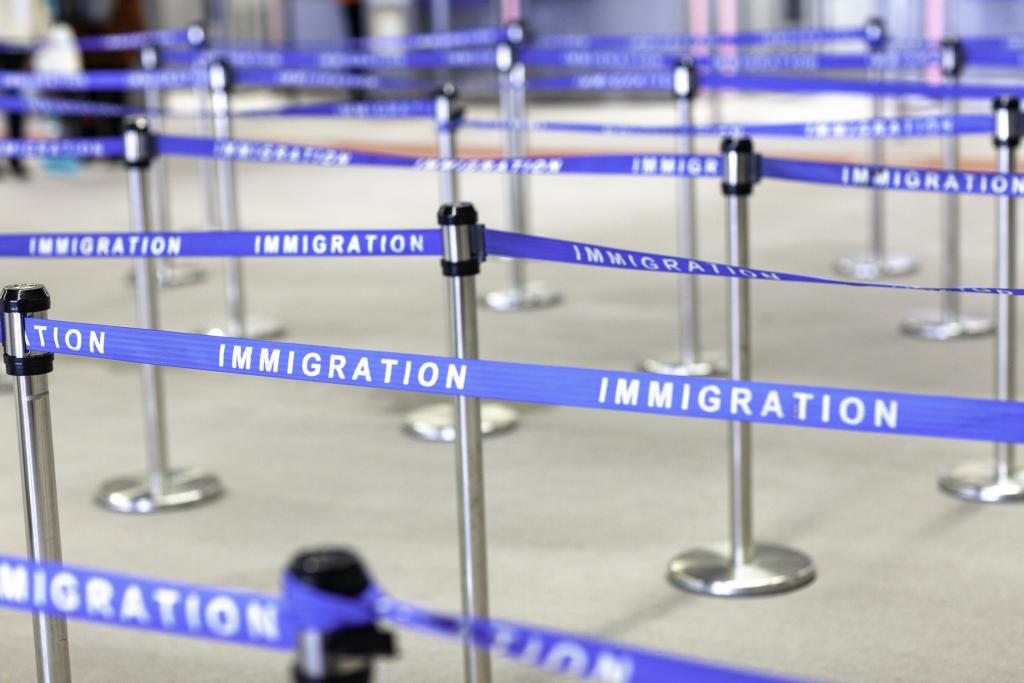
The long-awaited immigration White Paper was published by the government this morning (12 May 2025), after the Prime Minister made a public announcement on immigration. There is a lot to digest within the 82 pages of this White paper and there will be plenty more detail and reaction in the coming days, weeks and months. Provided that the announcements are implemented in full, this represents a major overhaul to the UK’s immigration system as we know it.
So, what was announced and what does this mean for visa holders, employers and educational establishments across the UK?
Sponsored work routes
As expected, a vast number of changes have been announced to the sponsored work routes with the government’s stated intention to reinvent the immigration system so that it is “linked to skills and training requirements here in the UK, so that no industry is allowed to rely solely on immigration to fill its skills shortages.” The main changes announced in this category are as follows:
- Skills thresholds for work visas will be returned to degree level (RQF Level 6) and corresponding ‘going rates’ for roles will be looked at in due course to reflect the higher skills threshold.
- The Immigration Salary List will be abolished and replaced by a new Temporary Shortage List, to provide workers in certain roles access to the Points-Based immigration system for roles that fall below degree level.
- Access to the points-based immigration system for roles below degree level will be limited to occupations where there have been long term shortages, on a time limited basis, where the Migration Advisory Committee (MAC) has advised it is justified. This will be where there is strong evidence of shortages, which are critical to the country’s industrial strategy.
- The ability to sponsor overseas workers will be contingent on “workforce strategies” being drawn up and implemented, with employers needing to focus on and invest in “increasing domestic skills and recruitment.” This includes options to restrict employers sponsoring skilled visas if they are not committed to increasing skills training.
- The Immigration skills charge payable by sponsors for each Certificate of Sponsorship (CoS) that they assign to a worker, is to increase by a whopping 32% from the existing rate of £364 per year for small sponsors and £1,000 per year for medium or large sponsors. This is on the back of the fee for assigning a CoS increasing from £239 to £525 only last month.
- In major news, the social care worker visa route will be closed for new applications from overseas later this year. Until 2028, care workers who are already sponsored to work legally in the sector will be able to continue to extend their stay, change sponsors and apply to settle, including those who need to switch employers following a licence revocation. This will, however, be kept under review.
- The process for employers and skilled workers to get visas will be streamlined, “reducing bureaucracy and supporting growth.” In the future, applicants will no longer need to physically to travel to a Visa Application Centre for a second time to collect their passport with a physical endorsement. This will be welcome news to visa applicants globally.
Global Talent
- The government have announced that they will “go further” in ensuring that the very highly skilled have opportunities to come to the UK and access our targeted routes for the brightest and best global talent. They will do this by increasing the number of people arriving on our very high talent routes. This will, of course, be welcome news for many who have found the existing global talent routes to be not fit for purpose with low take up rates.
Student sponsor and visa reforms
- Requirements that must be met for educational sponsors to recruit international students are to be strengthened, and the minimum pass requirement for each compliance assessment to be raised.
- Implementing a Red-Amber-Green banding system to rate the compliance performance of each sponsor, so that it is clear which institutions are achieving a high rate of compliance, and which are at risk of failing.
- The government will be exploring introducing a levy on higher education providers income from international students, to be reinvested into skills.
Graduate visas
- Visas issued to graduates to remain in the UK after their studies will be reduced from 24 to 18 months.
English language requirements
- As mooted in the last few days, the English language requirements for Skilled Workers will be increased from B1 to B2 level, in accordance with the Common European Framework for Reference for Languages (CEFR). This is equivalent to A-level English.
- A new English language requirement is being introduced for adult dependants of skilled workers and students at Level A1 to align with other family-based UK visa routes, with a progression to level A2 for visa extensions, and B2 for settlement in the UK.
- Existing English language requirements for settlement applications will be increased across the board, with only limited exceptions, from B1 to B2.
Indefinite Leave to Remain/Settlement in the UK
The government will be reforming the current Rules around settlement and applying for British citizenship following a period of residence in the UK. The changes announced, coined in this White Paper as “earned settlement” and “earned citizenship”, include:
- Expanding the qualifying period for settlement under the Points based system from five years to ten years. This would include those on skilled worker visa. Individuals will have the opportunity to reduce the qualifying period to settlement and citizenship based on contributions to the UK economy and society. The government will consult on these changes later in the year.
- Thankfully for many, the government have announced that there will still be a shorter pathway to settlement of five years for dependants of British citizens or settled persons. The existing safeguards to protect the vulnerable, including settlement rights for victims of domestic violence and abuse, will also be retained.
- A new bereaved parent route will be introduced for individuals who hold visas as parents of British or settled children, who have tragically lost their child. This will enable them to settle in the UK immediately in the same way as bereaved partners.
- A refresh of the controversial Life in the UK test and how it operates will be carried out in due course.
Closing remarks
It is understandable that these announcements will cause distress to individuals subject to UK visas or who are planning to apply in the coming months. It will also be worrying for organisations who recruit overseas workers within their organisation and what these announcements will mean for their workforce planning. It is worth mentioning that this is a White Paper published by the government and therefore not yet legislation. This means that the new proposals will not become law with immediate effect and will take some time to go through the various stages of Parliament, before we will see these changes implemented in practice. That said, we are now clear on what this Labour government’s stance is on immigration and their direction of travel. It is therefore important to consider now how these changes will affect you or your organisation and take action now, where possible.
If you require assistance with these changes please speak to our Immigration team on 0345 450 5558 or [email protected]
